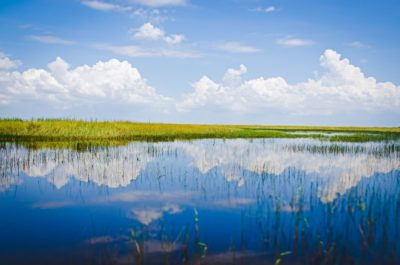 Governor DeSantis acted quickly this week to sign an executive order which directs Florida’s environmental agencies to take action on a broad range of water quality and natural resources issues. These broadly sweeping actions have the potential to affect industry, growth and business in Florida.
Governor DeSantis acted quickly this week to sign an executive order which directs Florida’s environmental agencies to take action on a broad range of water quality and natural resources issues. These broadly sweeping actions have the potential to affect industry, growth and business in Florida.
Actions to speed up restoration include expediting improvements to the Army Corps of Engineer’s management of Lake Okeechobee, including updating the Lake Okeechobee Regulation Schedule and expediting key Everglades restoration projects, including the EAA Reservoir, the C-44 reservoir, the C-43 reservoir and Tamiami Trail bridging.
Numerous measures are aimed at improving water quality, including creating a Blue-Green Algae Task Force, updating restoration plans for Lake Okeechobee and the Caloosahatchee and St. Lucie Estuaries, adding stormwater treatment to the C-43 reservoir, identifying water quality treatment technologies to install near water control structures on Lake Okeechobee, establishing a septic conversion and remediation grant program, and continuing to support FWC’s Harmful Algae Bloom Task Force and DEP’s red tide emergency grant program.
Water supply measures include engaging to develop alternative water supply sources and an education and outreach program focused on conservation and reuse efforts.
The executive order also creates several government positions through appointing a Chief Science Officer and creating the Office of Environmental Accountability and Transparency and the Office of Resiliency and Coastal Protection. It also opposes off-shore oil and gas activities off every coast in Florida and hydraulic fracturing in Florida.
Governor DeSantis will seek $2.5 billion over four years to implement Everglades restoration and his water resource protection goals.
It will be important for Florida’s businesses and industry to stay engaged on these water resource issues, particularly updating the Lake Okeechobee Regulation Schedule. For additional information on this executive order and any of the activities directed, please contact Luna Phillips, Gunster’s environmental law practice group leader, or Debbie Madden, who both work regularly on water resources issues.
Read the full text of E.O. 19-12, “Achieving More Now for Florida’s Environment.”
Yes! Please sign me up to receive email alerts from other Gunster practice areas.
This publication is for general information only. It is not legal advice, and legal counsel should be contacted before any action is taken that might be influenced by this publication.
About Gunster
Gunster, Florida’s law firm for business, provides full-service legal counsel to leading organizations and individuals from its 13 offices statewide. Established in 1925, the firm has expanded, diversified and evolved, but always with a singular focus: Florida and its clients’ stake in it. A magnet for business-savvy attorneys who embrace collaboration for the greatest advantage of clients, Gunster’s growth has not been at the expense of personalized service but because of it. The firm serves clients from its offices in Boca Raton, Fort Lauderdale, Jacksonville, Miami, Naples, Orlando, Palm Beach, Stuart, Tallahassee, Tampa Bayshore, Tampa Downtown, Vero Beach, and its headquarters in West Palm Beach. With more than 280 attorneys and consultants, and over 290 committed professional staff, Gunster is ranked among the National Law Journal’s list of the 500 largest law firms and has been recognized as one of the Top 100 Diverse Law Firms by Law360. More information about its practice areas, offices and insider’s view newsletters is available at www.gunster.com.
